Fire Emblem: Three Houses Review

Official Score
Overall - 90%
90%
Fire Emblem: Three Houses is a fantastic entry in the series, and has quickly become one of my favorite RPGs of the modern era.
Fire Emblem: Three Houses follows the journey of Byleth, a former mercenary who reluctantly takes the position of a professor at the prestigious Officers Academy. The peaceful world of Fodlan is home to three nations, the Golden Deer, Blue Lions, and Black Eagles – all overseen by the Church of Seiros, who control the academy at the Garegg Mach Monastery. Charged with tutoring the leaders of tomorrow in all things battle and mind, Byleth is tasked with choosing a house and nurturing its students to their full potential.
This sets a promising premise for the 15th game in the Fire Emblem franchise, as players explore a narrative-driven world full of character, emotion, rewarding mechanics, and intense turn-based, tactical combat.
Fire Emblem: Three Houses Review
[line style=’solid’ top=’10’ bottom=’10’ width=’100%’ height=’1′ color=’blue’]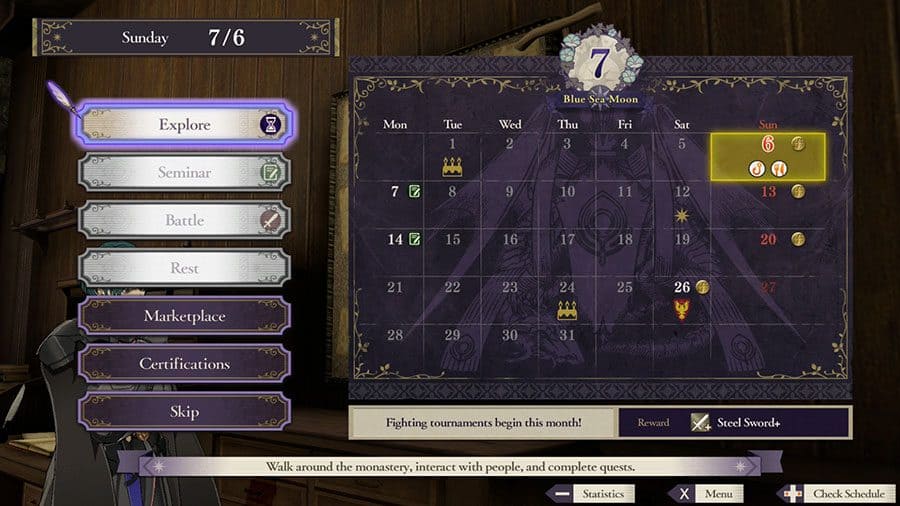
I would not consider myself a fan of the Fire Emblem franchise. Not because of my lack of awareness of the series or its lack of appeal, but mostly because it has always been a handheld experience. Very few of the games have released on a console-based platform, which is one of the many reasons I was excited for Fire Emblem: Three Houses to launch, finally giving me the opportunity to explore a franchise I’ve long admired from a distance. With that said, let’s see if Fire Emblem: Three Houses is a worthy addition to your collection, whether you’re a franchise veteran or a first-time gambler.
Without a shadow of a doubt, Fire Emblem: Three Houses is a pioneer in the narrative-driven RPG space. It features a colorful cast of deep, meaningful, and memorable characters, many with enough depth and character to rival that of main protagonists in other games. Much of the games plot, mechanics, and features all center around socially-driven engagements with these characters, each presenting more personality and background with every moment of play.
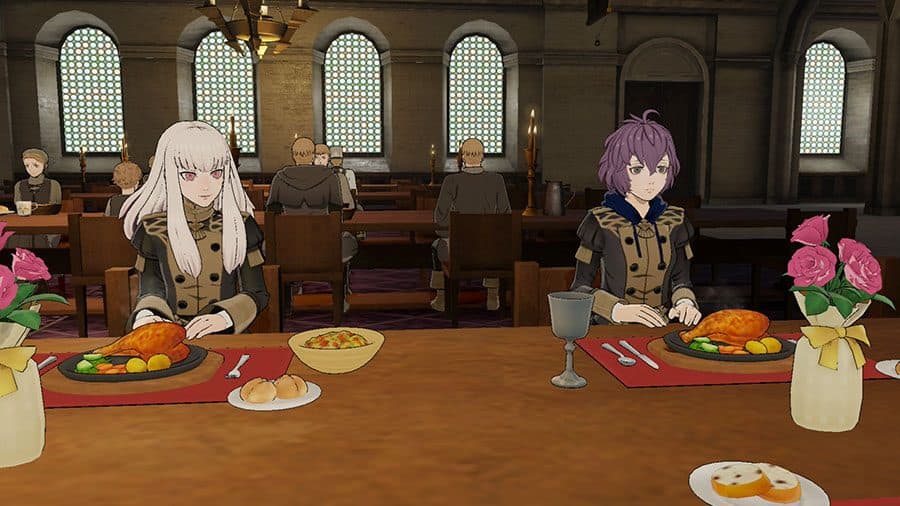
Much likes its JRPG brethren, Three Houses can be dialogue-heavy in parts, but it does so in a way that never feels stale. I truly wanted to learn more about these characters, what motivated them, the losses they had suffered, it’s rare for a games cast to encapsulate me as much as Three Houses did, but it did so every step of the way. These relationships are not merely about forming bonds with characters, almost all of the characters you encounter can be recruited into your house, adding a physical reward to a social experience.
The driving force behind Fire Emblem: Three Houses are the social interactions and these are the focal point throughout much of the game. As the protagonist, you get to choose to align yourself with one of the three houses or eventually, the church. Doing so influences the dialogue, the story, the choices, and the ending you will experience. This all provides a huge level of reward in regards to replay value.
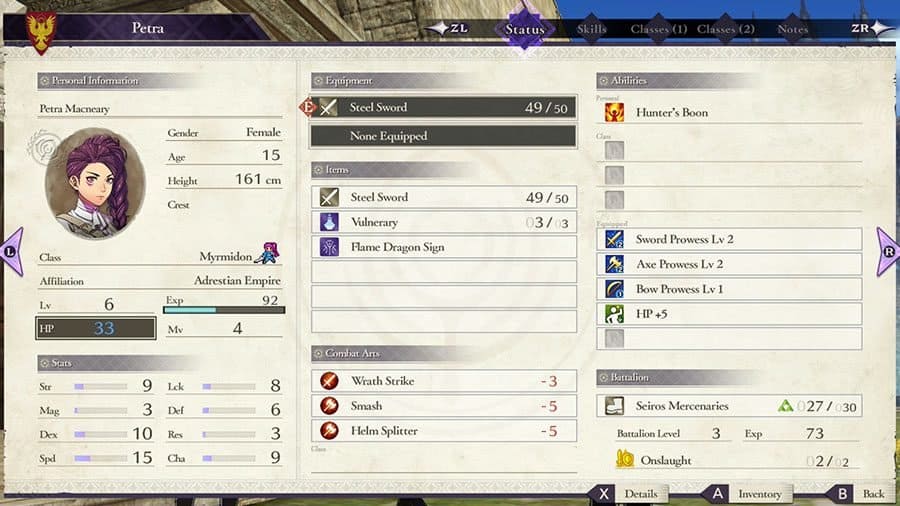
A room of players could compare experiences and discuss stories and events they shared with characters they met, and all could be entirely different. It could be mere happenstance that you connect with one of the characters, or it could be more direct as they share similar morals and character that appeal to you as a player or a person. You may not want to love or hate these characters, but you won’t have much choice.
Stepping aside from the social narrative aspects of the game, Fire Emblem: Three Houses is just as deep and rewarding in other areas of the RPG genre. The turn-based combat is arguably one of the most refined in the genre, offering a quick to learn but hard to master system that is increasingly rewarding with each swing of a blade. Every character you recruit has their own unique stats, personal abilities, strengths and weaknesses, personality, the complete package. You completely control how they progress, what goals they desire to achieve, and the weapons they wield. It’s akin to having a cast of 15 main characters in your party that you can edit and influence throughout the entire experience.
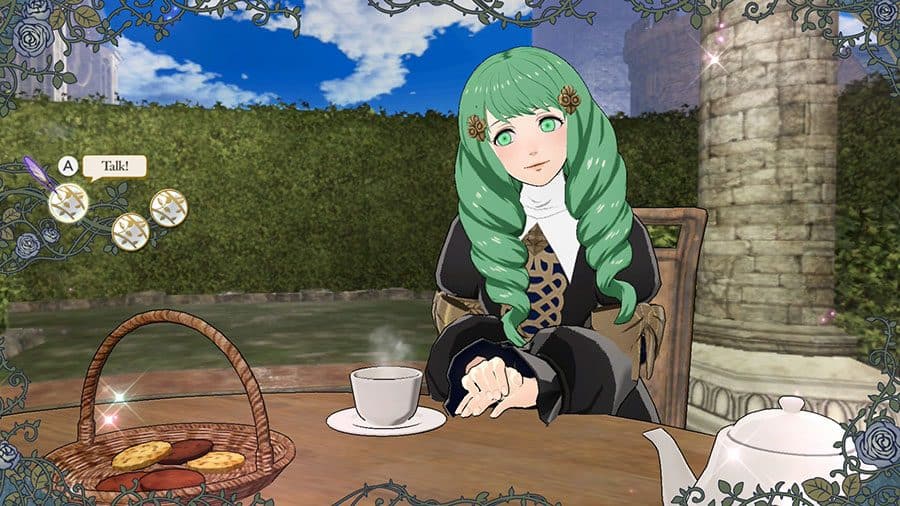
Each character can progress through different classes that belong to one of five different trees, Beginner, Intermediate, Advanced, Master, and Unique, which can be combined to offer at least 40 different classes. During one of our staff meetings I was discussing with a colleague my love for Dedue, a stout and honorable combatant who I nurtured into a Great Knight, a class that boasts heavy armor, a massive axe and an armored horse. Almost certain of my Dedue’s dominance, I was both surprised and impressed to hear of my colleagues Ferdinand, an energetic and noble warrior who was trained to become a Pegasus Knight with a unique Avo ability. Translation: He mounts a flying horse with a spear and has a combination of abilities that meant he was practically impossible to hit.
This was just an exchange between two friends regarding two characters, in a game that boasts almost as many characters as it does classes. The micro-management of ensuring each character is training and equipped to their maximum potential can be overwhelming at times but the more difficult and complex it becomes, the more rewarding and satisfying the results.
Characters can be further enhanced outside of the class system with a combination of features that unlock throughout the game. Battalions are special units that can be assigned to a character offering powerful attack abilities and effects. They also create a larger sense of battle, with a single character attacking with 30 soldiers at their back, it’s far more satisfying than a simple one-on-one encounter. Special legendary weapons can be discovered and enhanced, becoming even more powerful on a New Game+ file.
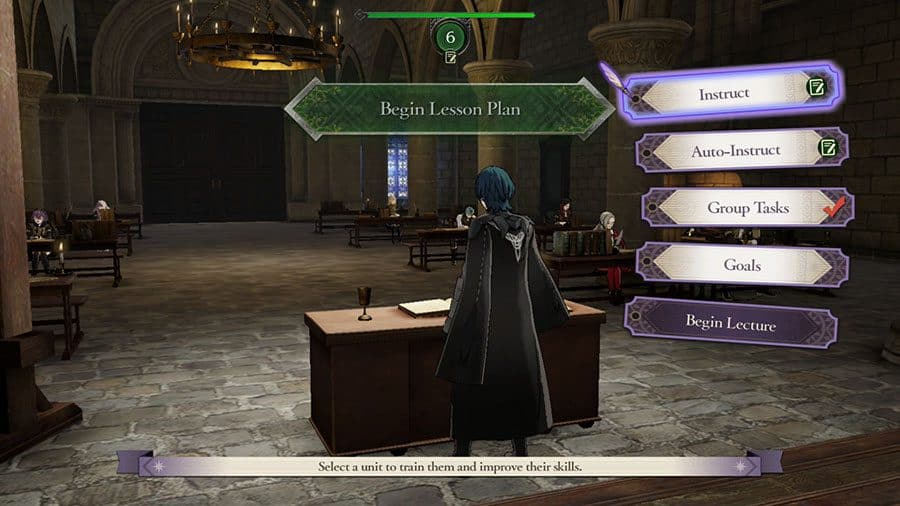
When you’re not decimating the enemies forces or building social relations with other characters, you’re teaching. As a professor in the Garegg Mach Monastery, you’re in charge of nurturing your chosen house to the best of your ability. This unique angle combines many aspects of time management and social interaction in a system that has positive and negative effects, both on and off the battlefield.
You can encourage students to become better friends, increasing their effects and compatibility on the battlefield. You can teach them in individual areas of battle to improve their skills, send them on joint tasks, all of which come together to build characters in so many different ways. Using a Gambit (the special attacks of Battalions) or a Link attack (attacking when allies are nearby) benefit from stats, class, and also affect the social support level of each character involved. At a single glance, it all works fantastically, but take a deeper look and it’s awe inspiring.
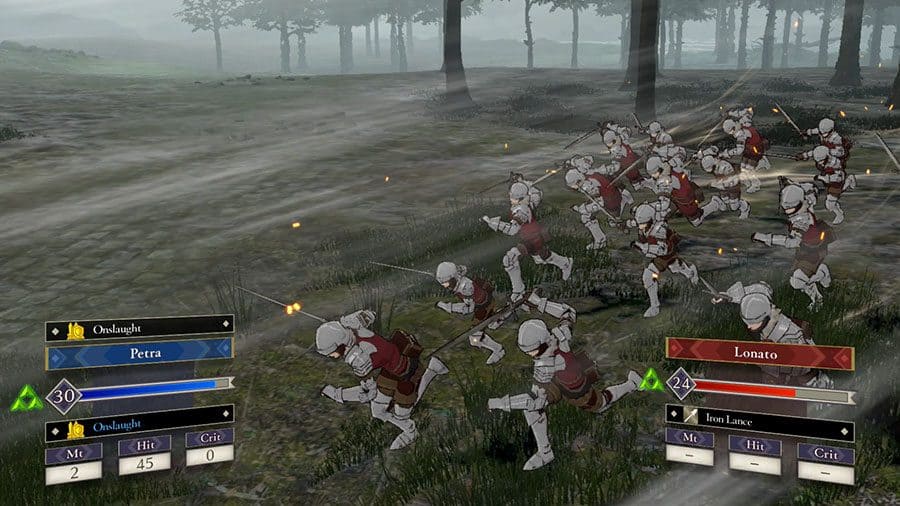
I’m so happy that Fire Emblem has finally come back to the home console market. I’ve been waiting for many years to dive into the franchise and although it’s a game I will not forget, it’s not without its downfalls – some of which are the restrictions of the platform. The textures are poor and the performance definitely wanes on the Nintendo Switch. In addition, animations are somewhat limited and a lack of map variation definitely sets a sour tone in the very latter stages of the game. All things considered though, Fire Emblem: Three Houses excels in every area it needs to.
Fire Emblem: Three Houses is a fantastic entry in the series, and has quickly become one of my favorite RPGs of the modern era.
[infobox style=’success’ static=’1′]This Fire Emblem Three Houses Review was done on the Nintendo Switch. The game was purchased digitally.[/infobox][blogger ids=” cat=’honest-game-reviews’ orderby=’date’ order=’desc’ count=’4′ descr=’200′ readmore=’1′ rating=’1′ style=’image_large’ border=’0′ dir=’vertical’]